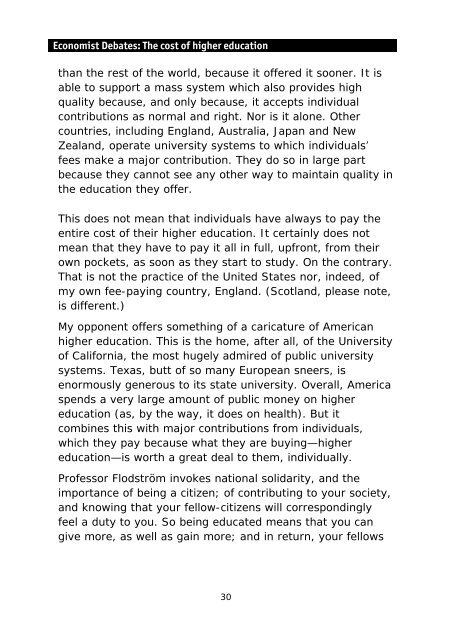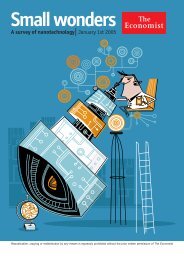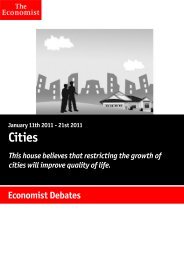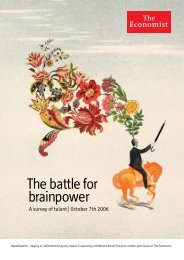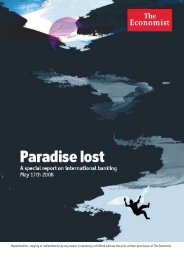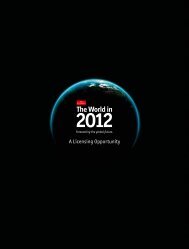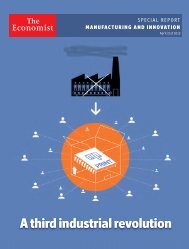download this debate as a PDF - The Economist
download this debate as a PDF - The Economist
download this debate as a PDF - The Economist
Create successful ePaper yourself
Turn your PDF publications into a flip-book with our unique Google optimized e-Paper software.
<strong>Economist</strong> Debates: <strong>The</strong> cost of higher education<br />
than the rest of the world, because it offered it sooner. It is<br />
able to support a m<strong>as</strong>s system which also provides high<br />
quality because, and only because, it accepts individual<br />
contributions <strong>as</strong> normal and right. Nor is it alone. Other<br />
countries, including England, Australia, Japan and New<br />
Zealand, operate university systems to which individuals’<br />
fees make a major contribution. <strong>The</strong>y do so in large part<br />
because they cannot see any other way to maintain quality in<br />
the education they offer.<br />
This does not mean that individuals have always to pay the<br />
entire cost of their higher education. It certainly does not<br />
mean that they have to pay it all in full, upfront, from their<br />
own pockets, <strong>as</strong> soon <strong>as</strong> they start to study. On the contrary.<br />
That is not the practice of the United States nor, indeed, of<br />
my own fee-paying country, England. (Scotland, ple<strong>as</strong>e note,<br />
is different.)<br />
My opponent offers something of a caricature of American<br />
higher education. This is the home, after all, of the University<br />
of California, the most hugely admired of public university<br />
systems. Tex<strong>as</strong>, butt of so many European sneers, is<br />
enormously generous to its state university. Overall, America<br />
spends a very large amount of public money on higher<br />
education (<strong>as</strong>, by the way, it does on health). But it<br />
combines <strong>this</strong> with major contributions from individuals,<br />
which they pay because what they are buying—higher<br />
education—is worth a great deal to them, individually.<br />
Professor Flodström invokes national solidarity, and the<br />
importance of being a citizen; of contributing to your society,<br />
and knowing that your fellow-citizens will correspondingly<br />
feel a duty to you. So being educated means that you can<br />
give more, <strong>as</strong> well <strong>as</strong> gain more; and in return, your fellows<br />
30


